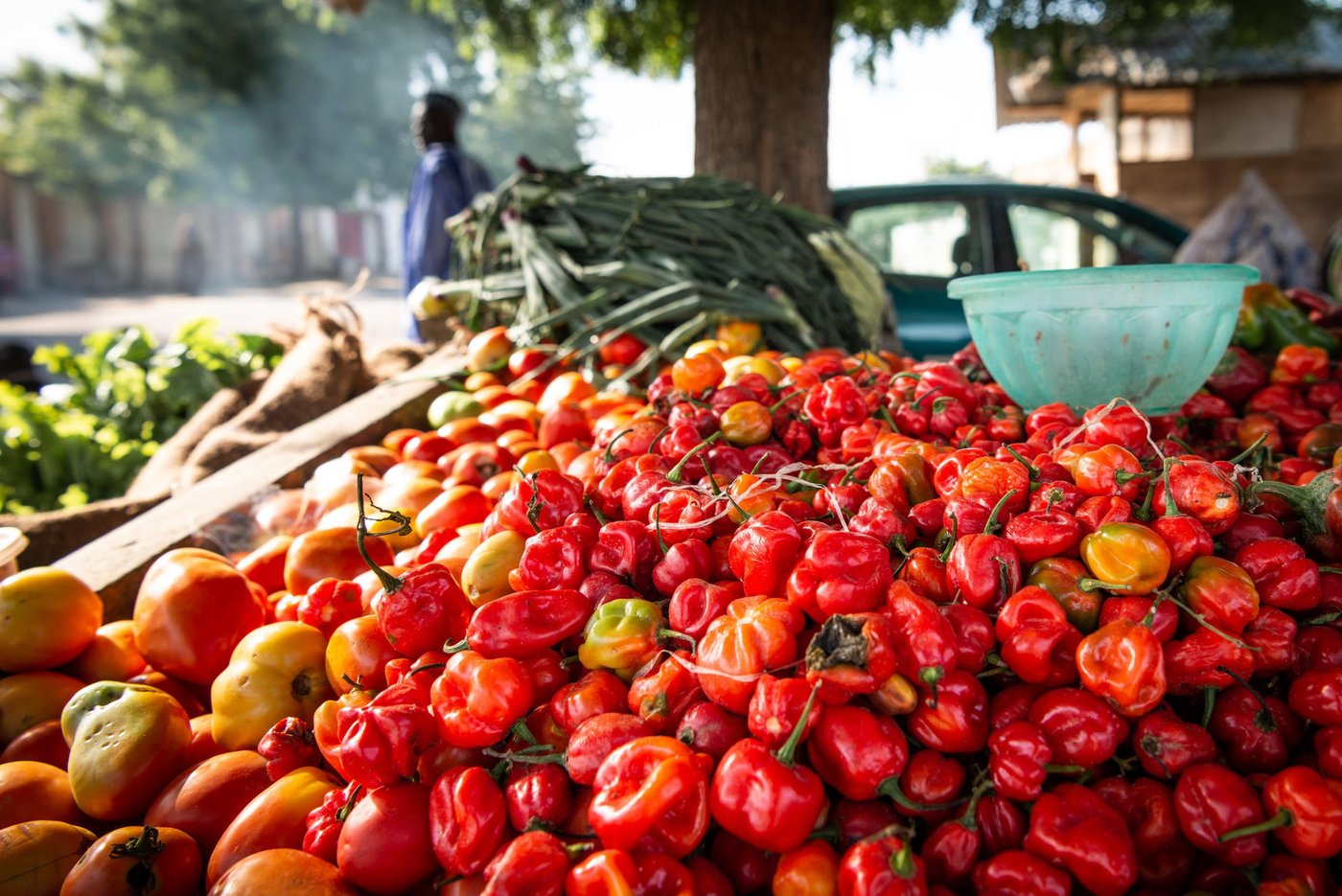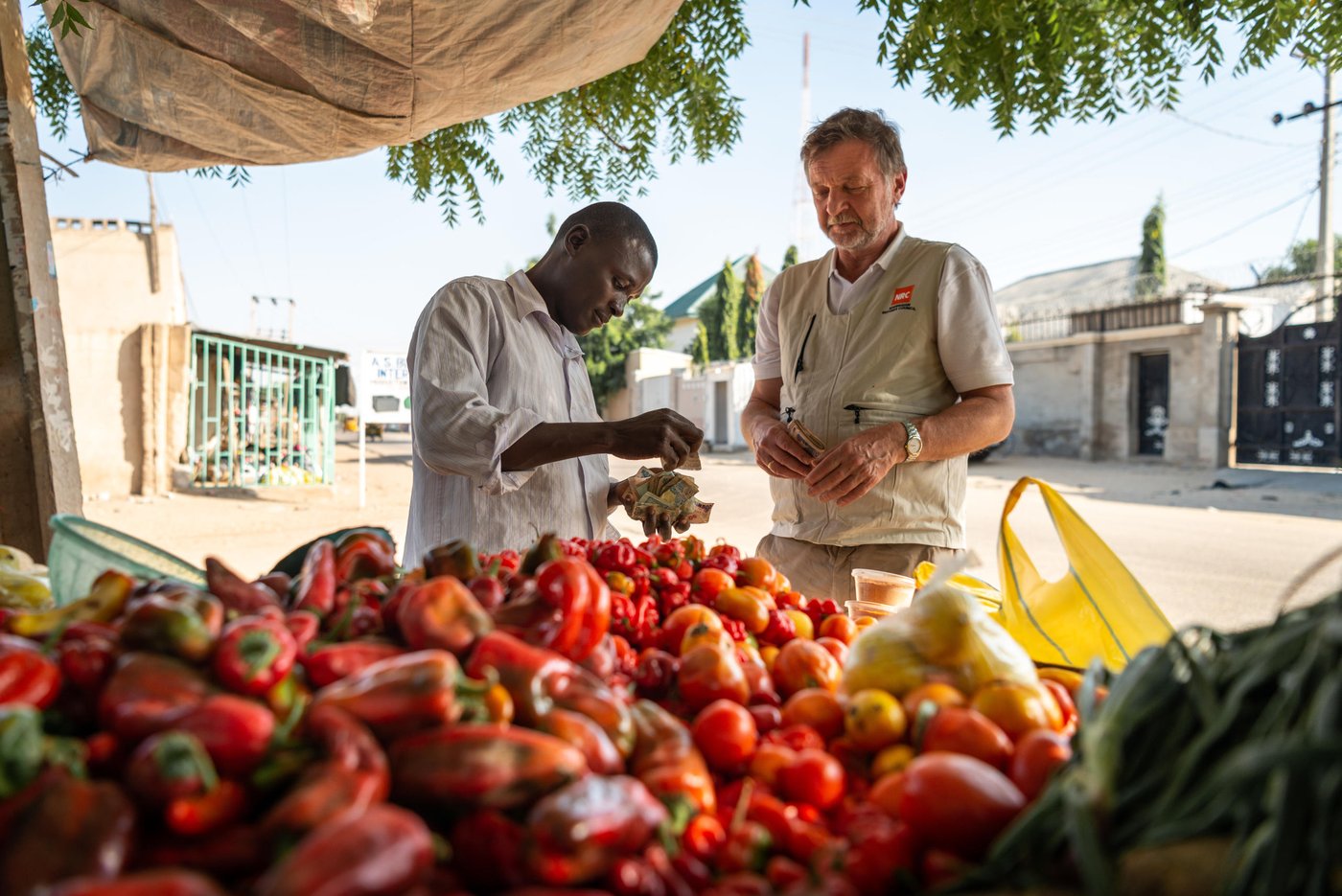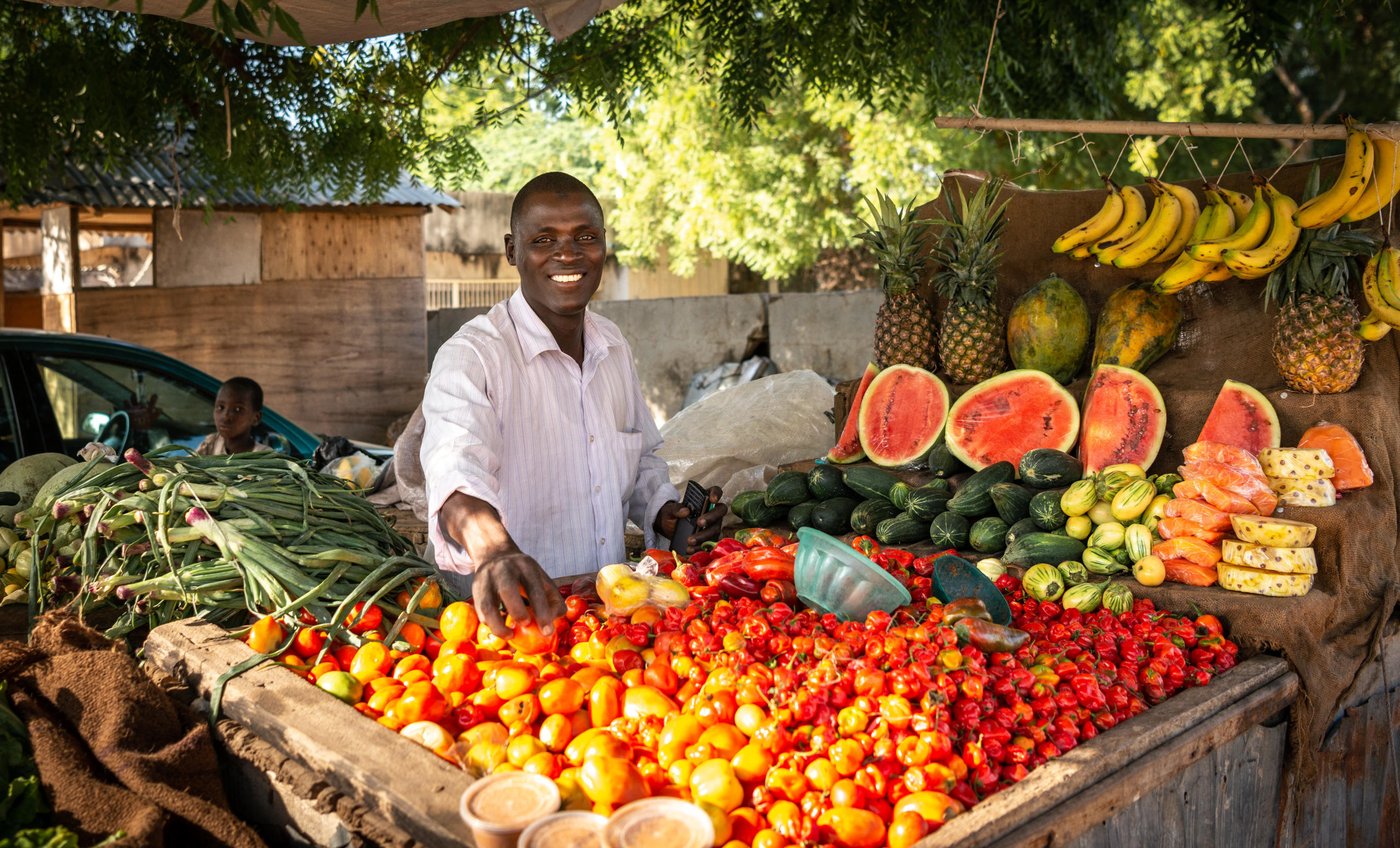Babagana Malam Idrissa is 35 years old and comes from the town of Bama, 70 kilometres from Maiduguri, the capital of the state of Borno.
Fled in a hail of bullets
Babagana was forced to flee when Boko Haram attacked Bama in 2014. But before he left, he found a hiding place for his wife and children. While the fighting raged, the thought of what they could be exposed to was unbearable. So, Babagana went back and managed to bring his whole family to safety in Maiduguri.

A short course changed his life
The family had left everything they owned behind. But when Babagana discovered NRC, he saw the opportunity to create a new future.
We were offering an entrepreneurial package consisting of courses and support to help displaced people start their own businesses. And so the 35-year-old found himself back in the classroom.
USD 100 of start-up money
While Babagana went to school, his wife started sewing hats to help earn money. Together, they found out that there was no fruit or vegetable stand near where they lived.
With start-up funds from NRC equivalent to just over USD 100, Babagana started a roadside fruit stand. Business was booming, and after short time he was able to rent a small house, feed his family and pay school fees for the children.

Dreaming of a life beyond survival
Babagana’s story shows that, despite stresses near the limit of human tolerance, displaced people are not merely focused on survival. They are looking for opportunities to make their dreams come true. Babagana and his wife not only create work for themselves, they are also an inspiration to their local community.
Babagana sees a bright future ahead. Eventually he wants to leave Maiduguri. Like most displaced people, he would like to return home when it is safe enough.
Helping people to help themselves
After years of fleeing from danger, many displaced people need a helping hand to start their own business, in order to secure a new livelihood for their families.
NRC assists with counselling, training, networking and small investments so that people forced to flee can support themselves and not depend on handouts. Many of the people we support are single mothers and young people.


